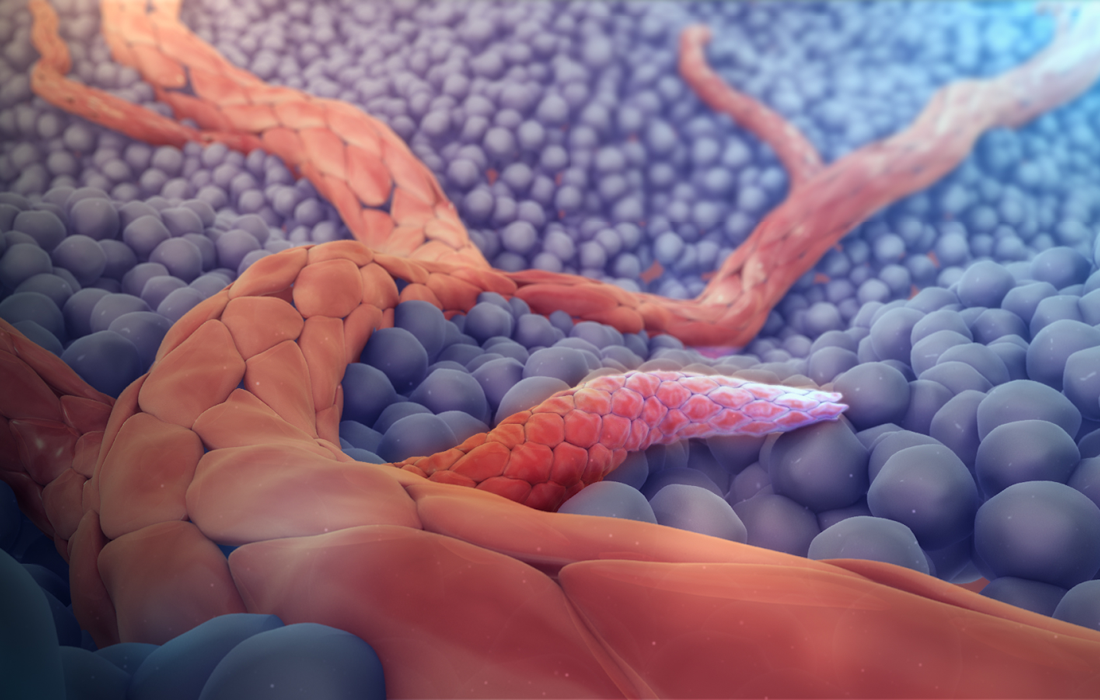Regenerative Medicine News and General Information, Stem Cell Therapy for Specific Conditions
Using Stem Cells to Deliver Drugs that Decrease Angiogenesis in Tumor Cells
Malignancies and cancer account for a quarter of human death cases. Lung, prostate, breast and colorectal cancers are the ones that cause the majority of cancer related deaths. The typical therapeutics include surgery, chemotherapy, and radiotherapy.
Although the methods for treating the malignancies and curing the cancer patients have greatly been improved in recent years, in most of the cases there is not a proper response to the traditional therapeutics by the cancer cells.
Mesenchymal stem cells (MSCs) are considered as the primary option for obtaining stem cells for use in clinical and experimental applications. They can be obtained from different tissues including bone marrow, fat tissue, umbilical cord wharton’s jelly and umbilical cord blood.
Tumor cells secrete different growth factors including vascular endothelial growth factor (VEGF) and fibroblast growth factor (FGF), that increase angiogenesis in order for the tumor to survive and proliferate.
New Study Insights on Stem Cells Use for Cancer Treatment
In a study published in the International Journal of Stem Cells, researchers try to clarify possible applications of MSCs through anti-angiogenic properties to treat cancer patients.
MSCs can mobilize from the BM as well as other tissues to the circulation upon the various injury situations, including hypoxia, normoxia, and inflammation. The wound healing ability of MSCs initiates with their migration to the signals released from the injured organs.
Angiogenesis is applied by tumors to proceed the process of growth. Angiogenesis can be inhibited through the exertion of MSCs as vehicles to deliver anti-angiogenic drugs to the tumors and, therefore, limit the tumor progression.
In one study, human placenta-derived MSCs were manipulated to deliver endostatin and were injected into nude mice. The MSCs expressing endostatin were observed to reside in the tumor site and a significant reduction in tumor size was reported without considerable systemic toxicity and adverse effects.
The reduced tumor size was reported to be due to increased apoptosis in the tumor cells and blocked angiogenesis.
Another phase II clinical trial reported that delivery of anti-angiogenic compounds resulted in the correction of the abnormal structure and malfunction of the blood vessels. This correction in the vessel structure was reported to be due to decreased vessel diameter and permeability.
Intratumoral administration of MSCs has been shown to be accompanied with the residence of these cells in the tumor sites and interfering with vasculogenesis, implying a beneficial potential of MSCs for targeted anti-angiogenic drug delivery.
Several beneficial properties have been proposed for MSCs that make them candidates for cell-based therapeutic tools in cancer therapy. But unfortunately a lot of further research is still needed in order to use this type of treatment in human clinical trials.
Source:
Marzie Ghollasi, et al. Prospects for Manipulation of Mesenchymal Stem Cells in Tumor Therapy: Anti-Angiogenesis Property on the Spotlight. Int Jou Stem Cell. 2021. https://doi.org/10.15283/ijsc20146
Image form:
https://www.wikiwand.com/en/Angiogenesis

